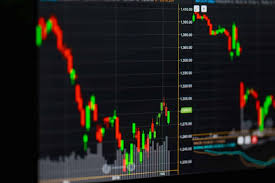Navigating the world of forex trading taxes can be daunting for both novice and experienced traders. The tax implications of engaging in foreign exchange trading vary significantly based on the trader’s country of residence and the specific regulations in place. Specifically, traders in different regions, such as those using forex trading taxes Hong Kong Brokers, must understand local laws to ensure compliance and maximize their profitability while minimizing tax liabilities.
Forex trading, in its simplest form, involves buying one currency while simultaneously selling another. This market is characterized by high volatility and the potential for significant profits, which can lead to intricate tax responsibilities. Understanding these taxes is crucial for traders who wish to retain as much of their earnings as possible.
Tax Classification of Forex Trading
In many jurisdictions, forex trading profits are treated as capital gains or ordinary income, depending on various factors, including how the trading activity is categorized. Classifying the nature of forex trading is vital, as it directly affects the applicable tax rate.
For example, if a trader is classified as a hobbyist – someone who trades occasionally without the intent of making a profit – their gains may be taxed differently compared to someone who trades professionally and derives most of their income from forex trading.
Reporting Requirements
Most jurisdictions require forex traders to report their earnings accurately. In the United States, for example, traders must disclose their income on Schedule D of their tax return and maintain meticulous records of every transaction. This includes dates, amounts, currency pairs, and the profits or losses from each trade.

Record-keeping is not just beneficial for fulfilling tax obligations; it can also aid in strategizing future trades and understanding trading performance. Some trading platforms offer built-in reporting tools, making it easier for traders to export their transaction data for tax reporting purposes.
Capital Gains Tax in Forex Trading
In many countries, including the U.S., forex trading profits that are classified as capital gains might be taxed at different rates for long-term versus short-term holdings. Short-term capital gains tax rates generally align with the trader’s ordinary income tax bracket, which can be quite high, depending on overall earnings. In contrast, long-term capital gains, which may apply to positions held for over a year, often qualify for a lower tax rate.
Understanding the distinction between both types of gains can significantly impact the net profit after taxes for forex traders. Many traders actively manage their positions to take advantage of the lower long-term capital gains rates where possible.
Deductible Expenses
Forex traders can often deduct a variety of business-related expenses from their taxable income. These could include costs associated with trading platforms, market data subscriptions, and even home office expenses if the trading occurs in a designated workspace. However, these expenses must be documented thoroughly, as tax authorities often require proof of the expenditure.
Foreign Taxes and Double Taxation
Traders engaging in international forex transactions may also face foreign taxes on their profits. Some countries impose withholding taxes on the earnings that trade across borders. Fortunately, many nations have treaties in place to prevent double taxation, which allows traders to reclaim some of the taxes paid abroad when filing their tax returns in their home country.
It’s crucial for traders to conduct proper due diligence regarding the tax treaties between their country of residence and the countries where they have trading activities. This often requires consulting with a tax professional or accountant specializing in international tax law.
Tax Strategies for Traders
To optimize tax outcomes, many forex traders adopt various strategies. These could include:
- Tax Loss Harvesting: This strategy involves selling losing positions to offset gains in profitable trades, thus reducing overall tax liability.
- Using Tax-Advantaged Accounts: Traders may consider placing their trading activities in accounts that offer tax benefits, such as self-directed IRAs or other retirement accounts, if eligible.
- Timing Trades: Being mindful of the holding period for trades, determining when to realize profits or losses to achieve better tax treatment.
Final Considerations
Navigating forex trading taxes can be complex, with various factors influencing tax obligations depending on location and trading activity. It’s advisable for traders to educate themselves on their specific regulations or to seek professional guidance from tax advisors familiar with forex trading.
Ultimately, understanding the tax landscape is essential for forex traders. By successfully navigating tax obligations, traders can focus on their strategies and elevate their trading performance without the looming concern of tax compliance.

